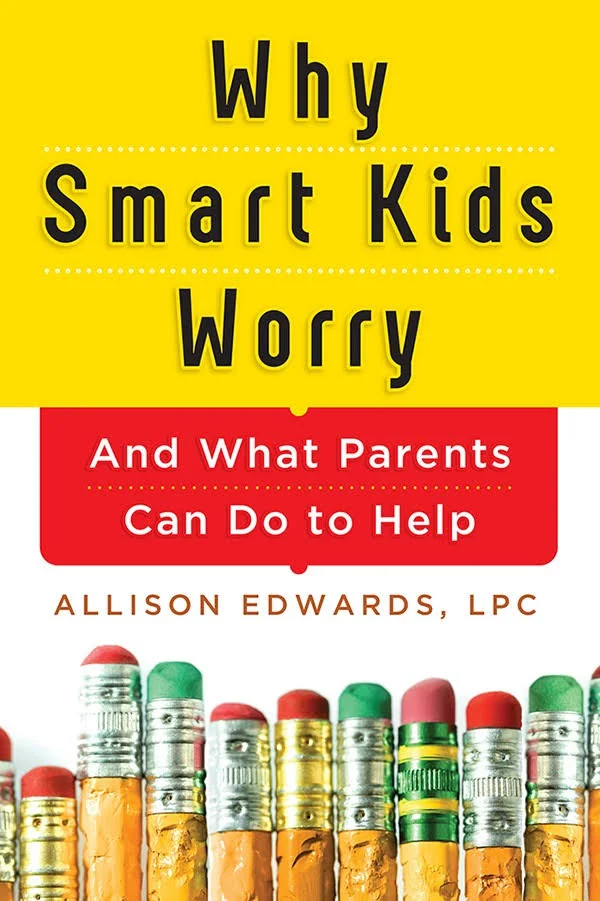I met Allison Edwards a few years ago in Vancouver, BC at a weekend workshop and we instantly connected because we shared a passion for supporting children and families. That same weekend Allison signed a contract to write her book Why Smart Kids Worry, I was thrilled to recently learn that her book was published and available for purchase. I had the pleasure of interviewing Allison about her book and hope to help bring her out to Seattle, WA so that she can share her wisdom with our community of parents.
MB: Why do smart kids worry?
AE: Smart kids worry because their minds take them places they aren’t ready to go emotionally. They worry about going to college in third grade and about dying in kindergarten because they know these events will eventually happen. Intellectually they can understand these events, but emotionally they can’t process them, thus they worry.
MB: How early does anxiety start with kids?
AE: Anxiety can start as early as three-years-old. Some parents describe having a fussy, impatient, hard-to-soothe child that has always been difficult. These parents generally see anxiety a lot earlier. Other parents describe having a happy-go-lucky child until around 7 or 8 when their child suddenly becomes worried. These parents are more caught off guard because they see such a sudden change in behavior in their child.
MB: How do you know if your preschooler/early elementary kid is becoming a worrier? Are there warning signs?
AE: You know your child is becoming a worrier if he/she talks about worries on a consistent basis. You may also notice your child becoming more distant, clingy or irritable which may also be signs that your child is worrying.
MB: What are three strategies for helping an anxious child?
AE: Three strategies to help an anxious child are:
1) Don’t get caught up in your child’s anxiety. Stay objective and supportive without getting wrapped up in what your child is worrying about. The calmer you can be, the calmer your child will become.
2) Have your own tools. It’s not enough that your child knows how to calm himself down. You need your own tools to use during times when your child’s anxiety is heightened.
3) Track your child’s anxiety. Take 30 seconds each day to record how anxious your child seemed throughout the day. Using a scale of 1 to 10, write down your child’s level of anxiety and then use the information to reflect on the past days, weeks and months. This will give you a better idea of what triggers your child’s anxiety and how long it generally lasts.
MB: What inspired you to write this book?
AE: I wrote this book because I struggled with anxiety as a child. I spent the majority of my childhood worrying about things like death, natural disasters, terminal diseases and what I was going to be when I grew up. When I became a child therapist, I found that the kids I was working with worried about the same things. When I couldn’t find any resources that addressed the topic directly, I compiled the information and tools that I had discovered and made it into Why Smart Kids Worry.
Allison Edwards is a Licensed Professional Counselor and a Registered Play Therapist who specializes in working with children, adolescents and their families. She received her undergraduate degree in Education from Northwest Missouri State and a graduate degree in Counseling from Vanderbilt University. Before opening a private practice, Allison developed and maintained a play therapy program for at-risk and immigrant children in the public school system. In her current practice, she sees children of all ages, consults with parents, supervises counselors and writes about childhood anxiety. She also serves as an adjunct professor at Vanderbilt University where she enjoys teaching future counselors how to work with kids.




